 Iran’s Attack on Israel
Iran’s Attack on Israel
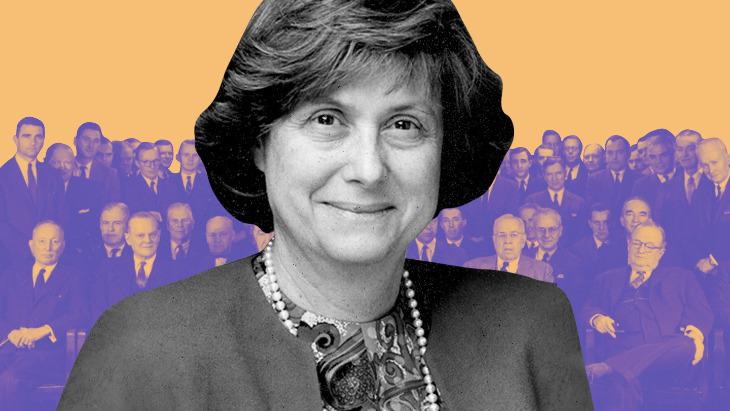

13 min read
Lydia Kess helped pave the way for working mothers, Shabbat-observant Jews and others in corporate America.
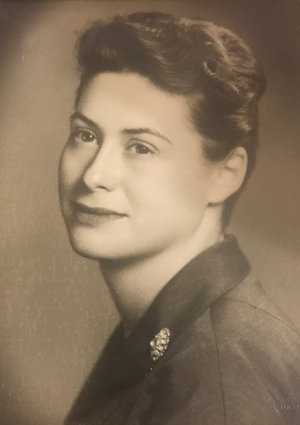 Lydia at 18
Lydia at 18
When one thinks of a high-powered, Wall Street attorney, they are not likely to picture Lydia Kess. Yet 50 years ago, Kess, an Orthodox Jewish mother from Brooklyn, N.Y., shattered gender and religious stereotypes, smashing the glass ceiling for women along the way by becoming the first female and first Orthodox partner at the major Manhattan law firm Davis Polk & Wardwell. All of which she did without compromising on her Jewish values.
Her accomplishments were so , Esquire magazine nicknamed her the “Queen of the WASPs.”
Esquire magazine nicknamed her the “Queen of the WASPs.”
“I was always driven to succeed,” Lydia says. “I wasn’t pushing hard for the gleam of dollars dancing in my head. I was pushing hard for professional success the same way I did when I played basketball or volleyball as a girl; I wanted to win the game.”
Born in 1935, Lydia Essrog grew up in Greenpoint, Brooklyn. Her mother, Marion, was a schoolteacher and her father, Shimshon, would sit and learn Torah. Lydia, who admits she was quite the tomboy growing up and always corralling other girls to play sports, was smart beyond her years. She repeatedly skipped grades in elementary school, graduating from what was then Pace College with a degree in accounting when she was just 18.
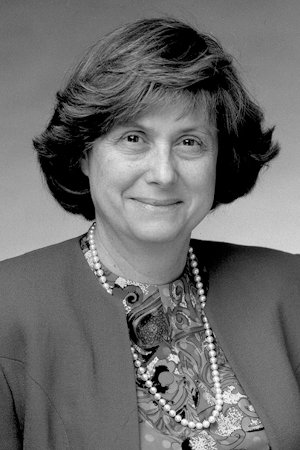 “It was the most wonderful blessing in my life,” Lydia said. “It would have been awful to be in school. I was very fortunate to have had a head start on life.”
“It was the most wonderful blessing in my life,” Lydia said. “It would have been awful to be in school. I was very fortunate to have had a head start on life.”
As a student, Lydia began to challenge the male hierarchy, though she didn’t do so with a bullhorn or a platform. She did so by just going about her daily life. One of only three girls in her college class, she chose not to eat in the designated “women’s cafeteria.” Instead, she simply sat down in the regular dining hall one day and that was that. "After that, they closed up the women’s cafeteria,” she recalls. “I didn’t have to do anything else, I just sat down.”
She also graduated at the top of her class, besting all her male counterparts.
But while she may have had a head start on life, she didn’t have a head’s up on her classmates when it came to finding a job, despite her class ranking. “I went to Pace College on a full scholarship at a time when it was the premier school for accounting. No one in my class had trouble getting a job.” No one, but Lydia herself.
“One firm offered me an office job, but I wanted to work in auditing. Finally, Price Waterhouse had a small-business department, which was out of the mainstream of their usual activities, and they offered me a job. I’ll never forget my first day on the job. My co-worker, Richard Armstrong, was the first person to greet me and he said, ‘Lydia, we’ve been saving all the lousy jobs for you.’ It was 1954, not 2021, there was no point in answering back because it was the reality and he was just saying aloud what others thought.
“I was lucky I even had a job.”
Not content to sit still, Lydia was driven to dream bigger and take on new academic challenges. Though employees at the firm in those days were not allowed to go to night school – it was grounds for dismal – Lydia secretly enrolled in Brooklyn Law School in 1956.
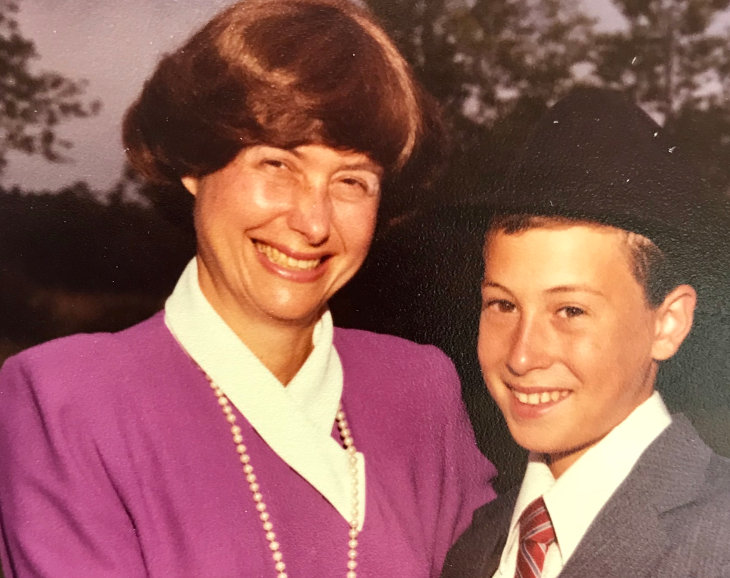 Lydia Kess and her son
Lydia Kess and her son
A year later, at the age of 22, Lydia became a certified public accountant and got married. Despite the CPA designation, Lydia’s career aspirations took a back seat to motherhood as she gave birth to three girls in three years. Her only son was born quite a few years later.
It was during this time that Lydia’s thirst for more knowledge dovetailed with her return to her Jewish roots. She was pushing her two very young children in a carriage down a busy street in Brooklyn when she saw a sign in a store window announcing Rosh Hashanah services. It had been years since she’d celebrated the Jewish New Year, but there was something about that sign that called out to her.
“I had dropped out of Jewish observance,” she readily admits. “It was a slow process that started in high school and accelerated in college and in post-graduate school. I hadn’t been thinking about and wasn’t focused on celebrating Rosh Hashanah in any way, shape or form. But there was the sign, so I signed up to attend and hoped my kids would stay quiet during services. It was one of the miracles of my life.
“I wasn’t looking for something to occupy my time. I was busy all day with the children and I was going to law school at night. But I was seeking an inspiring structure to inform my life; to know what it’s really all about.”
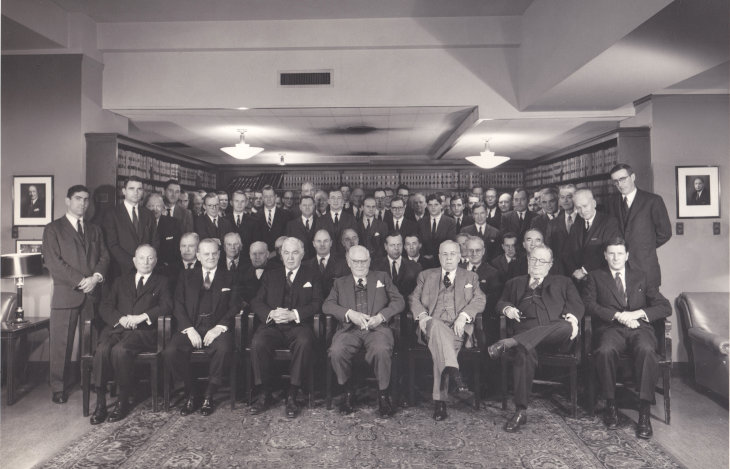 Davis Polk & Wardwell, 1962
Davis Polk & Wardwell, 1962
After attending the High Holiday services, she began going to the Young Israel of Prospect Park for Shabbat services. She credits Rabbi Naftali, zt’l, and Rebbitzen Aviva Langsam, the congregation’s leaders, with being very welcoming and letting her and her children into their home. “They held my hand as I made progress, religiously, slowly but continually.” The two families remain friends to this day.
Lydia finished Brooklyn Law School’s night program in 1962, and at that point she was fully Shabbat observant. “I knew that would an issue with respect to finding employment, but it turned out it wasn’t as significant as the fact that I had three children. That blew the minds of people who were interviewing me,” she recalls, adding that at that time, “there were few, if any, Shabbat-observant men working at Wall Street law firms. It was the epitome of waspy America and the fact that I was a night-school graduate from Brooklyn Law was not helpful.”
Though she had few, or no, prospects, Lydia was determined to find a job with only the best of the best firms. She sent out letter after letter, but no one answered. “So I took my resume and went up and down the elevators at all the major office buildings with law firms, they were all located in the same area, and I would go in and ask for an interview.”
Lydia became an attorney with one of the best Wall Street law firms in New York City, stepping into the epitome of the upper-class American, male-dominated corporate world.
When she entered the offices of Davis Polk & Wardwell, the receptionist thought she was looking for an office job. Eventually, she was directed to someone who could interview her as a lawyer. She underwent two days of interviewing, because as she says with a chuckle, “I was an oddball.” Her gamble paid off and after months of searching in January 1964, Lydia became an attorney with one of the best Wall Street law firms in New York City, stepping into the epitome of the upper-class American, male-dominated corporate world.
Her work ethic shined through. Lydia never complained about her workload. She would schedule her vacation days around the Jewish holidays. As for being out for Shabbat, “there was no precedent for that. I was very fortunate that the partners at Davis Polk were devoutly Protestant and very active in their churches, so they respected religion. As long as you delivered the work product on a timely basis, that was all they expected. When there were meetings on Friday afternoon or Shabbat, I would have to find someone to substitute for me. It’s a great credit to the people that I worked with that they would step in and cover for me.
“The incident which stands out most vividly in my mind was during the great merger acquisition craze of the 1980s. We had to give an opinion on a deal. Billions of dollars were at stake and the whole department had to agree to the conclusion because so much was riding on it. It was a transatlantic sale, and we had to give our response by the opening of work on Monday, London time.” That meant they would need to meet on Saturday, but it was the middle of July and Shabbat didn’t end until well after 9pm.
To accommodate Lydia, all of the tax partners came into the office very late that Saturday night. “They didn’t come with a grouchy, antagonistic attitude,” Lydia says. “They took it all in stride and we stayed there until 4 in the morning.”
As an observant Jew, she was determined to never use religion as an excuse, and even went so far as to go into the office on days her colleagues were home celebrating their holidays. “You shouldn’t take their holidays and your holidays. That’s not the way to proceed.” As she counsels young observant women who are going into corporate America, “You have to be beyond reproach.”
If God doesn’t give you the physical and mental strength there is nothing to feel guilty about, you just have to find a different way to express your talents and abilities.
She also got by with very little sleep and warns women in her community who are pursuing a high-pressure job that they will need to be “sharp on very few hours of sleep. You can’t make mistakes. You can’t take shortcuts. If God doesn’t give you the physical and mental strength there is nothing to feel guilty about, you just have to find a different way to express your talents and abilities.”
Lydia had to overcome challenges professionally as a woman in what was then truly a man’s world. For instance, when she became pregnant with her son, she tried to hide it because the culture was still one where women primarily didn’t work after having a child. After collapsing in an office elevator one afternoon, Lydia was forced to come clean with her colleagues at Davis Polk. Then she asked for the moon – paid maternity leave – and got it, becoming the first woman at the firm to do so, thus changing the trajectory for many other women.
The dinner was at the Yale Club and women were not allowed past the front desk.
“I wasn’t anxious to be a trailblazer, I just wanted to get a job and be promoted.” And promoted she was, all the way to becoming partner in 1971. It was a position no other woman had ever occupied at Davis Polk & Wardwell or for the most part at any Wall Street law firm.
But just because her name was on the letterhead at the firm, the only woman among a list of the 23 male partners and another nine counsels at the time, doesn’t mean it was all smooth sailing. She had been planning to attend the firm’s black-tie dinner after being made partner and had even bought a gown to wear to the event.
“The dinner was at the Yale Club and women were not allowed past the front desk,” she recalls. “The managing partner called me into his office and said, ‘I’m sorry but you can’t come this year, but this is the last time it will happen.’”
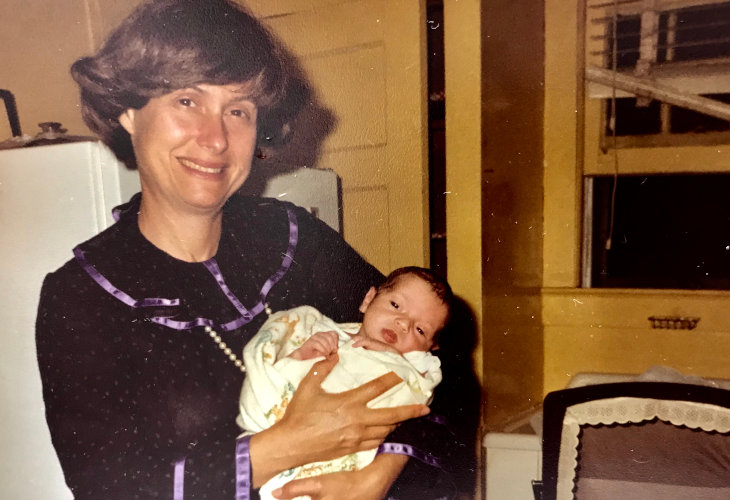 Holding a grandchild
Holding a grandchild
She also had to circumvent entry rules at a posh Park Avenue private club to attend a board meeting at Pace University that was being held there instead of the university where most meetings were held. Despite being a member of the Board of Trustees, Lydia was not allowed to ride in the “regular elevator.”
“I had to take the freight elevator up, but on the way down, I just got in with everyone else. This was all very normal throughout the 1970s.”
Barnard College clearly recognized the trailblazer that Lydia was, referring to her in an internal memo in November 1971 as “the top woman lawyer at Davis, Polk & Wardell.” Just a few weeks later, they invited Lydia to a meeting of the Barnard Lawyers’ Committee, made up of mostly Barnard alumni who were working as lawyers, and decided as a “public service” to take on “selected cases of job discrimination.”
In the 1978 Esquire article titled “Queen of the WASPS,” the author wrote that corporate firm Morgan Stanley relies on a 42-year-old partner at Davis Polk for tax advice before making multimillion-dollar decisions. “There’s nothing terribly unusual about that. The Morgan/Davis Polk relationship is just another of the marriages of great male-WASP institutions that have been part of the culture of American high finance since the turn of the century. Except that the lawyer whose tax advice the people at Morgan are addicted to is a far cry from the pinstriped WASPs who fill the offices… She’s Lydia Kess an Orthodox Jew and mother of three who takes the subway in from Brooklyn every morning.”
She was, the article said, “widely considered to be one of the two or three of the best corporate tax lawyers in New York and is treated that way.”
On paper it was a bizarre combination – a high-powered Wall Street attorney and a Holocaust survivor who learns Torah all day.
On the home front, Lydia’s marriage ended in divorce and she and her children moved to Boro Park, Brooklyn. She remarried in 1983 in a match that Lydia says was “truly made in heaven.”
“On paper it was the most bizarre combination – a high-powered Wall Street attorney and someone who was sitting and learning Torah all day, who had survived the Auschwitz death camp during the Holocaust.” In reality, though, it was “absolute joy and fulfillment.” Lydia and Rabbi Sholom Alter Mark were married for 33 years until his passing in March of 2016. She loved that her income allowed her husband to devote himself to Jewish learning and outreach, learning with college students and young Russian emigres.
She is also determined to give back. She has served on numerous boards including as the first woman member of the Board of Trustees at Columbia Presbyterian Hospital and her alma mater, Pace University, where she also endowed a scholarship for students in financial need.
Lydia, who goes by her English name professionally and uses her Jewish name “Leah,” for most things now, finally retired in 2002. She has 13 grandchildren and a number of young great-grandchildren and loves spending time with all of them. Looking back on her life, Lydia says that without a doubt, God was helping to drive the events of her life.
“God is not my partner; He’s my propulsion engine into all these things. He opened the door and raised me up.”
